Poll: Voters Support Protections From Eviction Records
New polling shows strong bipartisan support for policies including expunging or sealing eviction records and restricting their use.

A new national poll from Data for Progress and The Lab, a policy vertical of The Appeal, shows strong bipartisan support for policies that protect tenants from the profound and enduring harm of eviction court records—including expunging or sealing such records and restricting their use.
According to the poll:
- 64 percent of voters, including 54 percent of Republicans, support making it easier to seal and/or expunge records related to evictions;
- 66 percent of voters, including 59 percent of Republicans, support preventing creditors from holding an eviction against someone when making lending decisions;
- 69 percent of voters, including 62 percent of Republicans, support preventing insurers from holding an eviction against someone when determining what rates to charge for insurance;
- 72 percent of voters, including 63 percent of Republicans, support preventing employers from asking job applicants if they have ever been evicted;
- 54 percent of voters, including 46 percent of Republicans and 55 percent of independents, support making it illegal for potential landlords to ask about previous evictions on rental applications.
Key Context
In a Lab policy report, Kathryn Sabbeth, a law professor at the University of North Carolina School of Law and director of the school’s Civil Legal Assistance Clinic, explains the “Scarlet E” of eviction records—how the mere filing of eviction cases can haunt tenants for years and effectively banish people from civil society.
Private companies collect housing court data, cull the records for names of defendants in eviction cases, and then sell those records to landlords and other entities. Unpaid rent is also treated like other consumer debt and can ruin people’s credit scores. Such records are then used as a basis to deny housing, jobs, credit, and can even affect insurance rates. Even if no judgment is entered or the eviction complaint is wholly without merit, the mere filing of eviction can mark someone as undesirable and trigger a cascade of long-term collateral consequences.
Prof. Sabbeth also explains how eviction records disproportionately harm low income people and people of color—especially Black women with children—deepening existing racial disparities, further entrenching housing segregation, and perpetuating cycles of poverty.
Today the impact of evictions and related records are exacerbated by the pandemic and its economic fallout, which have accelerated an existing national housing crisis. While a patchwork of federal and state eviction moratoriums have kept hundreds of thousands or perhaps even millions of people in their homes, eviction filings have continued to pile up, threatening devastating and long-lasting collateral harm if policymakers do not take action.
Prof. Sabbeth argues that while restricting the use of eviction records can mitigate their impact, expunging and sealing records—that is, “blocking the records at the source”—is “essential to protecting tenants from the severe and unfair negative consequences that will otherwise follow them” and keep them locked out of housing. Our polling shows popular support for both approaches.
Full Polling & Results
Many states and the federal government have instituted eviction moratoriums as a result of the current economic crises. These moratoriums prevent people from being evicted for being behind on their rent or mortgages. At some point, these moratoriums will expire and people will eventually face eviction. In some states, people have already been evicted. Records of these evictions could block people from housing, jobs, or loans in the future.
Below is a list of potential eviction-related policies. For each proposal, please indicate whether you support it or oppose it.
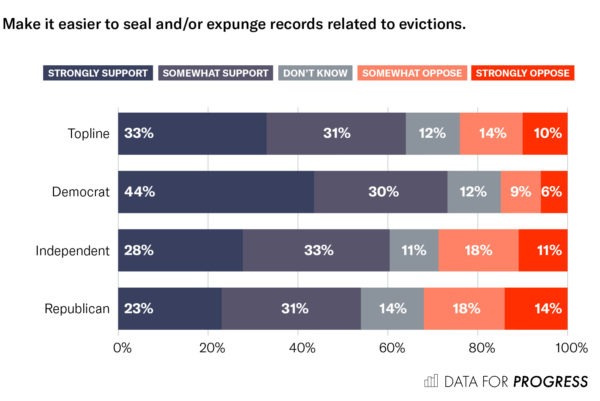
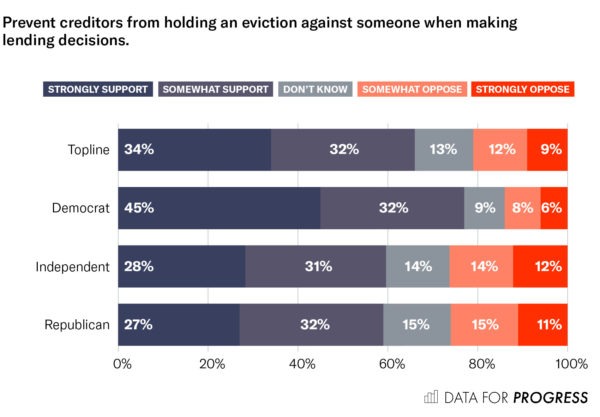
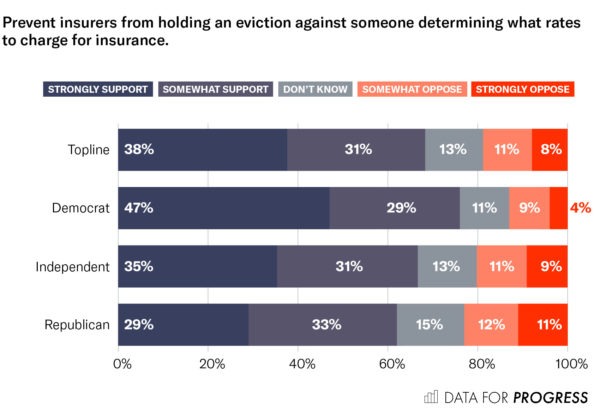
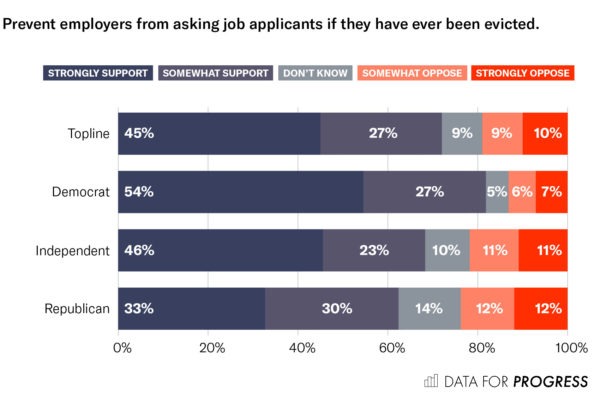

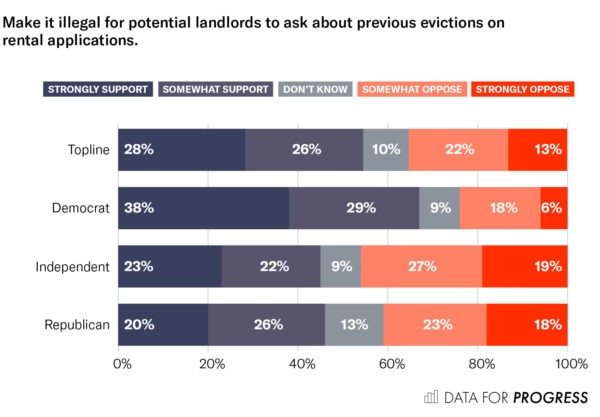
Polling Methodology
From January 22 to January 25, 2021, Data for Progress conducted a survey of 1164 likely voters nationally using web panel respondents. The sample was weighted to be representative of likely voters by age, gender, education, race, and voting history. The survey was conducted in English. The margin of error is ±2.9 percentage points.

